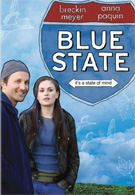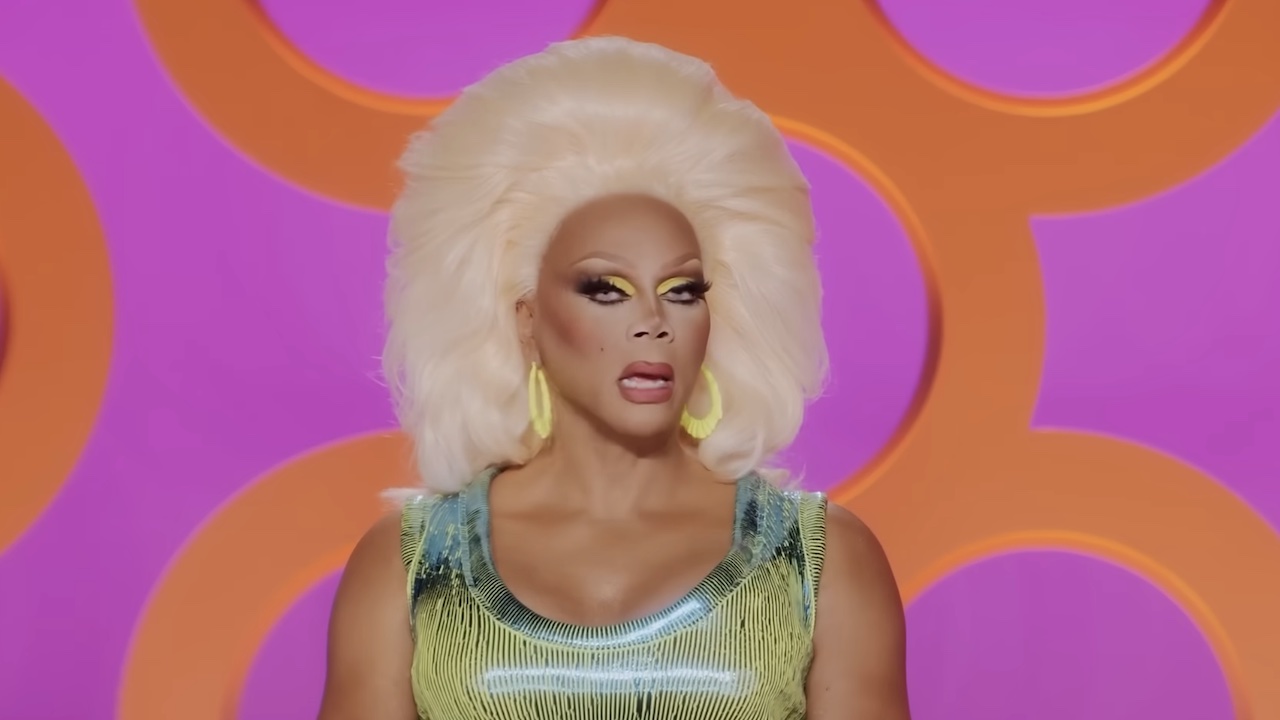Some of my European friends recently told me they refuse to travel to the United States as long as George W. Bush is in office. Although the rationale behind such a statement can be easily disputed, it’s a common decision among foreigners who strongly oppose the war in Iraq. In his feature debut Blue State, which is set during the 2004 presidential election, writer-director Marshall Lewy explores a similar situation from a different point of view, telling the story of an American citizen who vows to leave the U.S. if Bush gets re-elected. The film first introduces us to John Logue (Breckin Meyer), a graphic designer and freelance political blogger who takes some time off work to travel to Ohio and walk from door to door to persuade people to vote for John Kerry. Convinced that the Democrats have a real shot at conquering the White House, John solemnly promises that if Bush is reelected president, he’ll move to Canada for good. Unfortunately for John, the outcome of the election destroys his faith in the United States, prompting him to gear up for his one-way trip to Winnipeg. Looking for someone to share the ride with, John stumbles across Chloe (Anna Paquin), a young woman who desires to leave the country just as fast, but for slightly different reasons. Just days later, the two American “refugees” leave San Francisco to embark on a live-changing adventure that will eventually help them discover who they really are.
I read in a recent interview with actor Breckin Meyer that the politics in Blue State mainly set the stage for a love story between two opposite characters getting to know each other better, but I slightly have to disagree. Judging by the majority of the dialogue between the main characters, politics still seems to be playing a central role in the film. I have to admit that the script is not a political ad for a certain candidate or party, but John, Chloe, and several other characters we meet throughout the movie spend quite some time discussing the pros and cons of the current administration, including wars, oil, and other domestic government issues. On a slightly different note, the variety of the political statements also helps stimulate some of the film’s humor. On their way to the border for instance, John and Chloe pay a short but hilarious visit to his parents, who are both extremely conservative voters and just love to engage in heated debates with their son. In another scene, we learn that John only stops at gas stations that don’t carry Middle Eastern fuel.
It is true, however, that the characters’ political ideologies also help lay the foundation of what will eventually grow into a romance. The sad thing about this is that John and Chloe fall into the conventional road trip trap, doing almost exactly the same thing every stranger does in this kind of movie. After a rough start and severe differences in opinion, they slowly proceed to exploring what it is they have in common, before carefully evaluating the presence of a possible emotional or even sexual connection between them. What is interesting, however, is how the plot develops their characters. Especially during the first part of the film we suddenly learn that John and Chloe both have devastating secrets that may help further explain their political opinions or decisions. Exciting also is how Lewy’s script comprises several surprises that undoubtedly work to the film’s advantage. At first, John obviously decides to move to Canada to make a political statement, but as we later find out, his actions will slowly push him to reexamine his own identity as an American citizen. Here, the movie works beautifully.
Once John and Chloe cross the border, Blue State takes a somewhat drastic turn and is literally attacked by clichés. Lewy doesn’t seem to give the Canadians a fair enough treatment, often portraying them as hippie folks living in boring cities and playing curling all day. As for John and Chloe’s love story, all it takes a rather banal turn and mutates into a predictable mishmash. The last part of the film could have been better had Lewy treated his story with more subtlety, but I understand that you can’t always get what you want.
Luckily, the cast makes up for some of flick’s flaws. Breckin Meyer, known for idiotic comedies such as Road Trip, Rat Race, and Garfield, delivers an incredibly authentic performance as an American who feels betrayed by his own government. He also shares a solid chemistry with co-star Anna Paquin, who sometimes struggles with some of her lines but scores an overall decent performance. Some of the dialogue they are provided with is a little bit too cheesy for my taste, but they mostly keep it real and energetic. I guess it is pretty safe to say that the cast is the film’s most valuable asset.
For a first film, Blue State is a decent experiment with an interesting story line. The movie is definitely professional enough to be screened in theatres, but some people out there obviously thought it was not worth the try. Although the script is flawed and lacks punch at times, it still qualifies as watchable enough. With a little more improvement, Blue State would have performed better, but at least it’s so much more competent that many other nonsensical blockbusters. Go vote and try forming your own political opinion. It’s important no matter where you are from or where you live. Blue State was produced on a minimal budget, which is why I completely understand the absence of special features on the DVD. Recording a feature commentary however is not that expensive, so I’m glad director Marshall Lewy took his time to share his feelings about this first film with his viewers. Besides that, the disc only features some trailers of upcoming DVD releases.
Let’s take a brief look at the commentary. Lewy seems to be quite an interesting guy and someone who enjoys making films. He speaks with a lot of enthusiasm and always has something to say, never talking too much. He starts off by briefly describing how the film came together and what drove him to write the script, before telling his listeners that select parts of the film are autobiographical. Lewy also discusses how the politics in the flick reveal something about the main characters. He talks about all these things with enough passion and has always something insightful to add to his commentary. I was particularly surprised at how openly he shared his respect for his actors, explaining how they got to join the project and pointing out who did a great job at improvising parts of the dialogues and in which scenes. Most importantly, Lewy cover an array of topics, including the challenges of shooting an independent film in 20 days. Time restrictions, he explains, usually prompt directors to shoot at least five pages of a 100-page script every day for four weeks. I can only recommend his commentary if you likes the film well enough to watch it again.
Your Daily Blend of Entertainment News
I found some highly interesting interviews with Breckin Meyer and Anna Paquin on the Web, so it would have been informative and exciting to include a little Q&A session on the disc. But as I said, they probably ran out of time and budget, which is no big deal. An excellent commentary is better than nothing after all. The audio transfer and picture quality are top-notch as well, making the Blue State DVD one not to miss in case you appreciate indie films about love and politics.

